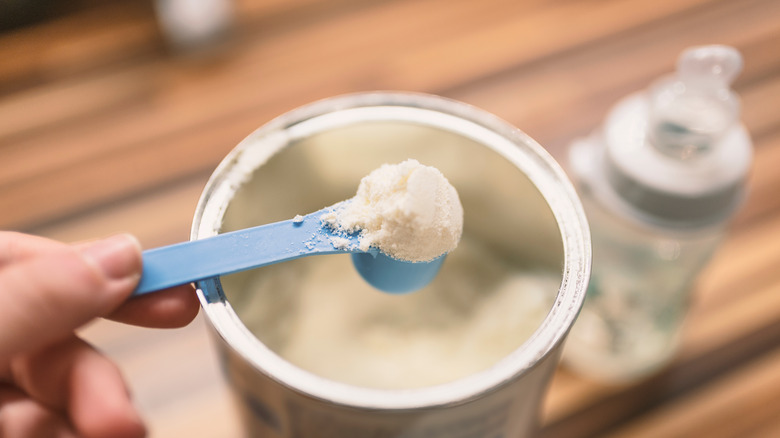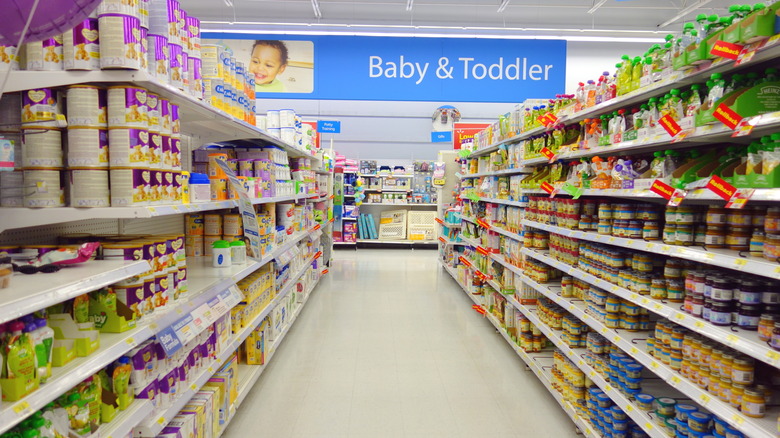Everything You Need To Know About The 2022 Baby Formula Shortage
Widespread food shortages are among the many economic setbacks that remain a major issue in the wake of COVID-19. The early days of the pandemic saw the mass stockpiling of things like canned goods, milk, and bananas, which gave way to a lingering global food crisis. With issues like record-high inflation and a scarcity of workers at play, The New York Times predicts a persistently rocky U.S. supply chain in 2022, writing that "many months, and perhaps years, are likely to transpire before the chaos subsides." As a result, many high-demand products are expected to remain thin on the ground for the foreseeable future, with projected grocery shortages of items like fish, eggs, coffee, and wheat products on the horizon.
One the most essential products on that list is baby formula, which is experiencing nationwide sales rations at many retailers following a massive shortage jump, reports NPR. The outlet cites a report from Datasembly, which shows that the "out-of-stock percentage" of baby formula, which ranged from 2-8% in 2021, has since risen to 23% as of January 2022. Here's what you need to know about the shortage — including what to do if you can't find formula at your local store.
Suppliers are struggling to meet the increase in demand
According to NPR, "thousands of young babies across the country rely on formula each year." The outlet adds that, per the CDC, only a quarter of infants born in 2017 were breastfed in their first six months. Since many parents pick up formula at their local grocery store or pharmacy, the shortage is causing major retailers like Walgreens, Target, and CVS to limit the amount of formula allotted to a single family. A Walgreens spokesperson told NPR that the nationwide constrains are "due to increased demand and various supplier challenges," and that the pharmacy chain is continuing to "work diligently with [its] supplier partners to best meet customer demands."
Even those who can get their hands on formula will likely be shelling out some extra cash. According to CBS News, the average cost of "the most popular baby formula products" has risen as much as 18% over the course of a single year. The outlet also reminds readers of the lasting effects of January's Abbott baby formula recall, which was due to the exposure of the bacteria Cronobacter.
Until supply chain issues are resolved, experts who spoke to ABC News encourage parents and caregivers to "reach out to pediatricians" for help acquiring formula, or to turn to organizations like the Women, Infants, and Children (WIC) nutrition program.

